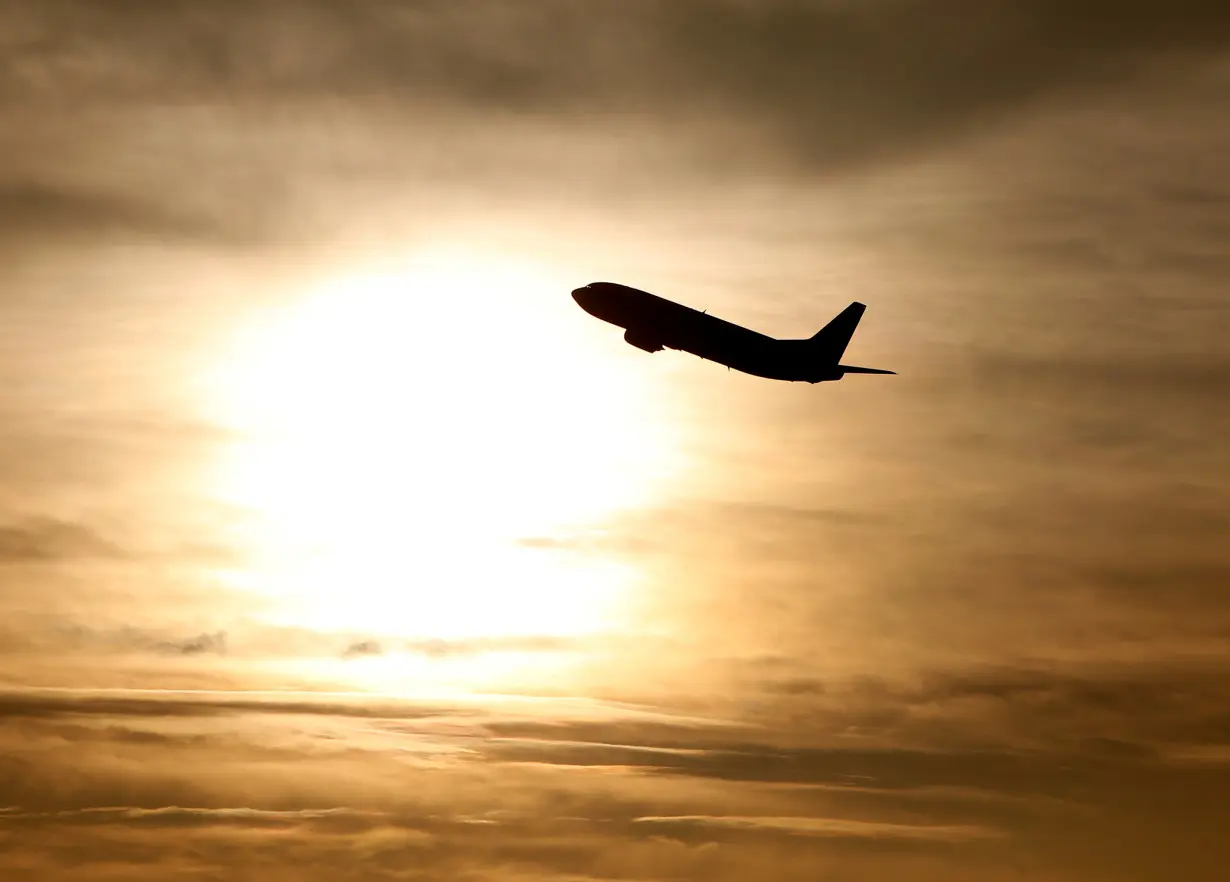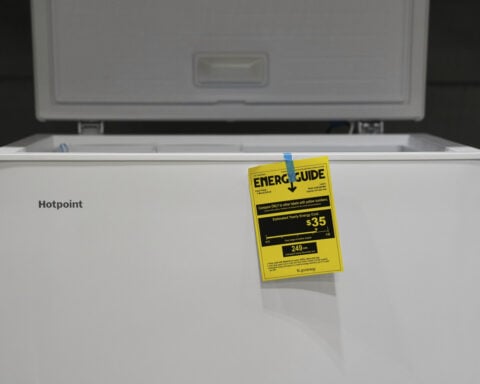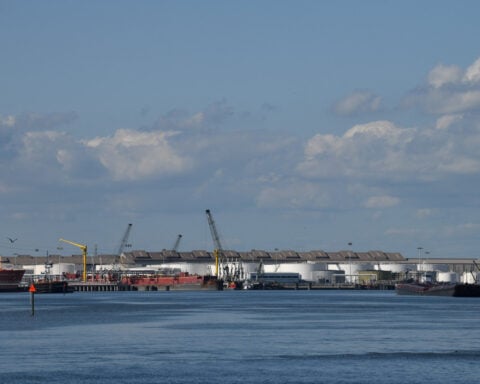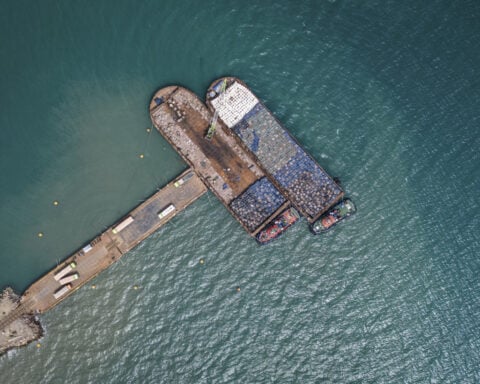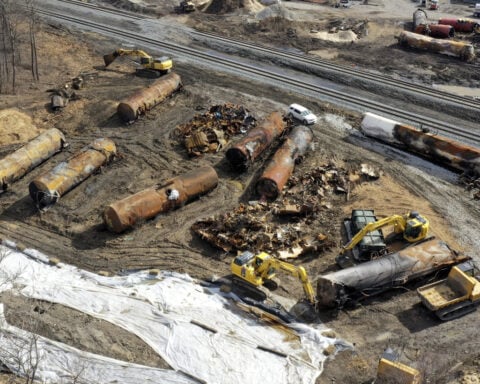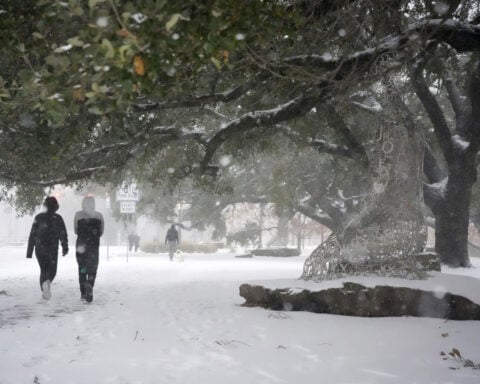By Kate Abnett and Conor Humphries
BRUSSELS (Reuters) -The European Commission has drafted plans to initially exempt long-haul flights from rules on monitoring their non-CO2 emissions after international carriers lobbied for an opt-out, documents seen by Reuters showed.
The EU is developing plans to require airlines to track and report their contribution to climate change from January 2025 - not only from carbon dioxide, but also soot, nitrogen oxides and water vapour.
Airlines' non-CO2 emissions contribute to global warming at least just as much as their CO2 output, according to the EU's aviation safety authority.
A draft Commission proposal for the new rules, seen by Reuters, would exclude international flights - defined by the EU as those departing or landing in Europe from non-European destinations - from the emissions disclosure rules for two years, limiting them until 2027 to only flights within Europe.
"Such reporting shall only be required in respect of routes involving two aerodromes located in the European Economic Area," it said, adding that flights from the EEA to Switzerland or Britain would also be covered.
It did not give a rationale for the exclusion. The exemption mirrors current EU rules that require airlines to disclose and pay fees for their CO2 emissions produced on flights only inside Europe, although those rules are due to be reassessed in 2026.
The proposed new rules have split the industry.
Lobby group the International Air Transport Association has been seeking an exemption for long-haul flights, while low-cost European carriers Ryanair, easyJet and Wizz Air say all flights - including long-haul international trips - should be included.
"The blanket exclusion of extra-EEA routes would give the misleading impression that these routes create no non-CO2 warming effects, misdirecting all future non-CO2 mitigation measures," the airlines said in a joint statement distributed to EU governments.
IATA has said it is not currently possible to accurately monitor a flight's non-CO2 emissions, and that the EU's emissions monitoring requirements should be voluntary and exclude international flights.
"Any intention of expanding the scope to extra-EU international flights would raise legal concerns," IATA director general Willie Walsh said in a letter to the European Commission in April, seen by Reuters.
The European Commission did not immediately respond to a request for comment.
(Reporting by Kate Abnett, Conor Humphries; Editing by Jan Harvey and Tomasz Janowski)

 Estimated 24.6 million TV viewers watched inauguration coverage, smallest audience since 2013
Estimated 24.6 million TV viewers watched inauguration coverage, smallest audience since 2013
 Mother on trial in West Virginia denies locking adopted teens in shed
Mother on trial in West Virginia denies locking adopted teens in shed
 Extreme cold and snow across the South isn't a threat to most native plants and animals, experts say
Extreme cold and snow across the South isn't a threat to most native plants and animals, experts say
 Star-filled Louis Vuitton show unveils East-meets-West streetwear in collaboration with Kenzo
Star-filled Louis Vuitton show unveils East-meets-West streetwear in collaboration with Kenzo
 Trump order leaves Cuba prisoner deal in limbo
Trump order leaves Cuba prisoner deal in limbo
 Ichiro Suzuki headlines 2025 Baseball Hall of Fame class, receiving 99.7% of the vote
Ichiro Suzuki headlines 2025 Baseball Hall of Fame class, receiving 99.7% of the vote
 The facts about Trump's Stargate AI announcement
The facts about Trump's Stargate AI announcement
 Trump says he is open to Musk buying TikTok if Tesla CEO wants to do so
Trump says he is open to Musk buying TikTok if Tesla CEO wants to do so
 Chicago Bears hire offensive guru Ben Johnson as head coach
Chicago Bears hire offensive guru Ben Johnson as head coach
